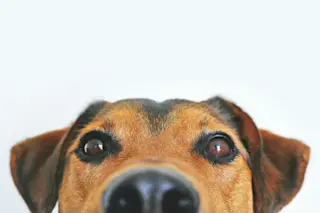Does a dog ever think, in their own way, “That sure looks like a squirrel, but I could be mistaken?”
Throughout history, humans have thought that our ability to reflect on our own thinking — what scientists call metacognition — distinguishes us from other animals. But there’s growing evidence that’s not the case. Researchers have put dolphins, rats, birds and more to the test, and concluded that they do have some awareness of their own knowledge. Might that list include dogs?
If you have a pet dog, you can help us find out!
To find out if animals are aware of their own knowledge, researchers have given them what’s called the Uncertainty Test.
The animal is trained to complete a certain task, like pulling a lever, if they’re given a certain signal. There’s a different task, like pulling a different lever, for a second signal. If they pull the correct ...














